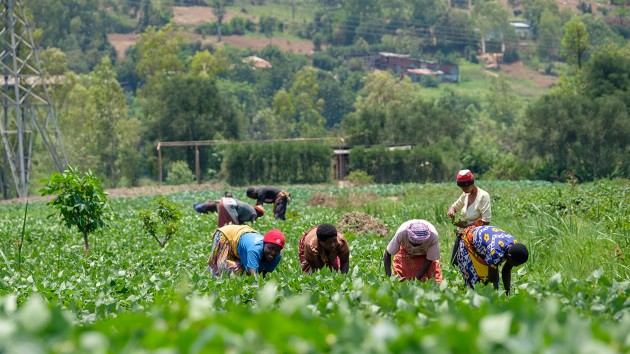Collection |
Collections
Filters
-
Collection Type
-
-
Collection |
 Food systems in the wake of COVID-19
Food systems in the wake of COVID-19
The COVID-19 crisis has exacerbated weaknesses and tested resilience of food systems.
Image: photography by azrudin/Moment Open/Getty -
Collection |
 One Health in Aquaculture
One Health in Aquaculture
Aquaculture is one of the fastest growing and highly traded food sectors, and will become increasingly important in future food systems.
Image: Abstract Aerial Art/DigitalVision/Getty -
Collection |
 First Anniversary Collection
First Anniversary Collection
Nature Food publishes interdisciplinary research and commentary on food sciences and food systems.
-
Special |
 The ocean in humanity’s future
The ocean in humanity’s future
The oceans have trapped one-third of the carbon dioxide emitted by human activities since the 1980s. They are home to 50-80% of life on Earth, feed over three billion people and support the livelihoods of hundreds of millions of people.
Image: Chaideer Mahyuddin/AFP/Getty -
Collection |
 Sustainable solutions to end hunger
Sustainable solutions to end hunger
Effective agricultural interventions could aid efforts to find sustainable solutions for ending hunger. In this collection, we present evidence-based recommendations from the Ceres2030 team on where to prioritize spending on interventions to achieve zero hunger by 2030.
Image: Camille Delbos/Art In All of Us/ Getty -
Collection |
 The plant microbiome
The plant microbiome
The UN General Assembly proclaimed that 2020 is the International Year of Plant Health to recognize and protect plant health, and to raise awareness of the crucial role of plant health in ecosystem health, food security and human health. Plants host diverse microbial communities that are associated with plant roots, the phyllosphere, rhizosphere and the endosphere, and comprise bacteria, fungi, protists, nematodes and viruses. Numerous studies from different fields of research have expanded our knowledge of the complex interactions between the plant, the associated microbial communities as well as the environment, and provided insights into the ecology and functions of this co-association, including the appreciation that the plant microbiota is important for plant growth, fitness, stress resilience and health. Such an increased understanding opens up the possibility to harness plant-associated communities for sustainable plant production and agricultural practises and to protect plants from the effects of climate change and human activities that lead to a decrease in biodiversity and the spread of plant diseases. This Collection contains Reviews and Research articles from across the Nature group of journals that cover the latest advances in plant microbiome research, addressing critical knowledge gaps that need to be addressed, such as a better understanding of the assembly of the plant-associated microbial communities, their dynamics, metabolic interactions or functional properties.
Image: Philip Patenall/Springer Nature Limited

 Blue Food
Blue Food